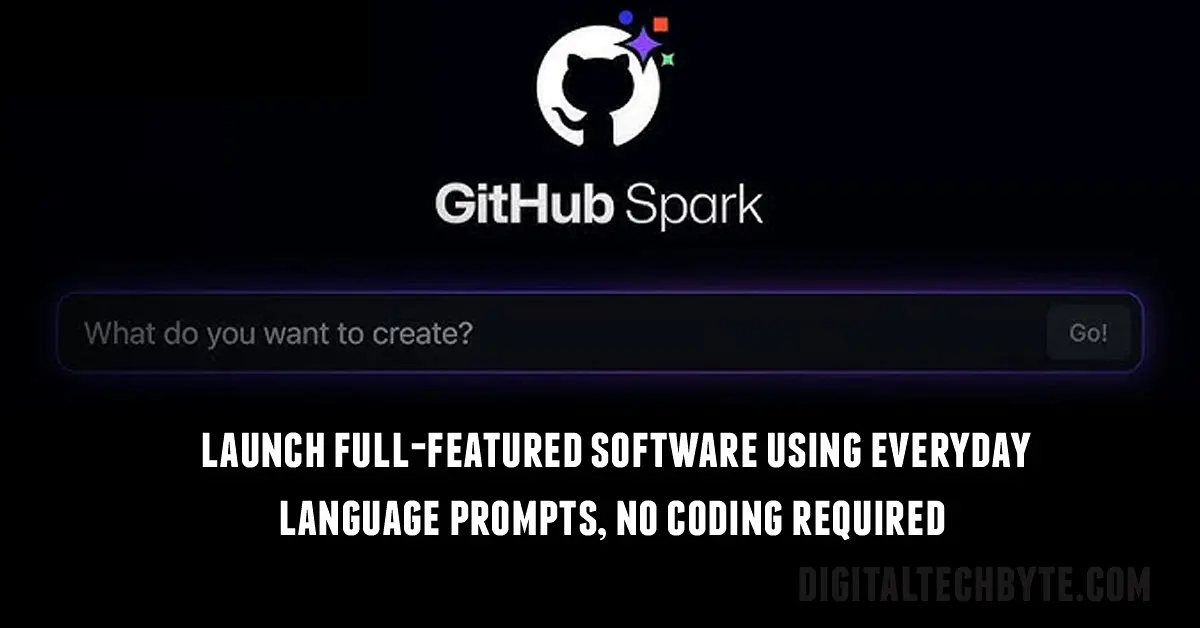
GitHub Spark: Revolutionizing App Creation with Simple Prompts
GitHub Spark is transforming how apps get built—empowering anyone to launch full-featured software using everyday language prompts, no coding required. Discover how this breakthrough democratizes development and reshapes the tech landscape.
From Dream to Deployment: App Development Gets a Spark
It’s official—software creation just leapt from a specialist’s game to everyone’s playground. Enter GitHub Spark, a cutting-edge tool that lets anyone build sophisticated, ready-to-deploy software simply by describing what they want in plain English. Forget spending months putting together a dev team or puzzling over code; Spark’s AI translates natural language prompts into fully functional applications within minutes.
That’s not just hype. Imagine telling Spark, “I need an invoicing app that tracks client payments, sends reminders, and generates reports,” and receiving a complete, customizable tool—no technical expertise necessary. The implications? Absolutely seismic for entrepreneurs, startups, nonprofits, and even legacy businesses lacking in-house tech muscle.
How GitHub Spark Actually Works
At its core, Spark leverages advanced natural language processing and code generation models, drawing from GitHub’s vast open-source knowledge base. Users type in what they want—be it a web app, a workflow, or a business dashboard—and Spark parses the request, assembling workflows, front-ends, and databases behind the scenes. The result: production-ready apps that can be exported, iterated, or scaled up on demand.
Developers aren’t left out, either. Spark allows “power users” to fine-tune the generated code, add advanced integrations, or layer on custom business logic. But for the first time, non-coders can independently design and launch tools they once only dreamed of.
Why GitHub Spark Is a Game-Changer
Let’s not understate it: Spark is tipping the scales toward true digital inclusivity. For small business owners and visionaries without access to expensive developers or venture backing, building an app is no longer out of reach. This democratization lowers barriers to entry, speeds up innovation, and allows brilliant ideas to get off the ground—fast.
The ripple effect stretches across industries. Startups can prototype instantly. Enterprises can offload internal tool requests, freeing up IT. Nonprofits can launch custom donor management apps without external consultants. If you’ve got an idea and a keyboard, Spark gives you everything else.
Real-World Impact—and Cautious Optimism
Of course, any leap in accessibility brings new challenges. App security, long-term scalability, and responsible use remain front-and-center concerns for IT leaders and admins. Experts caution that while Spark fast-tracks creation, ongoing governance and oversight are as crucial as ever to ensure privacy and safeguard sensitive data.
But there’s no doubt about the enthusiasm. Tech forums are already abuzz with stories of artists, teachers, and small biz owners launching real, revenue-generating platforms built from simple prompts. “I never thought I could build software myself,” says Mia Zheng, a first-time founder who just spun up her own appointment-booking app in a single afternoon. “Now, I can—and it feels amazing.”
Wrapping Up
GitHub Spark isn’t just an app builder—it’s a revolution in who gets to build the future. People don’t have to sit on good ideas anymore, waiting (and paying) for someone else to code them. The door to tech creation has been thrown wide open, and it’s hard not to get a little excited about what’s coming next.
